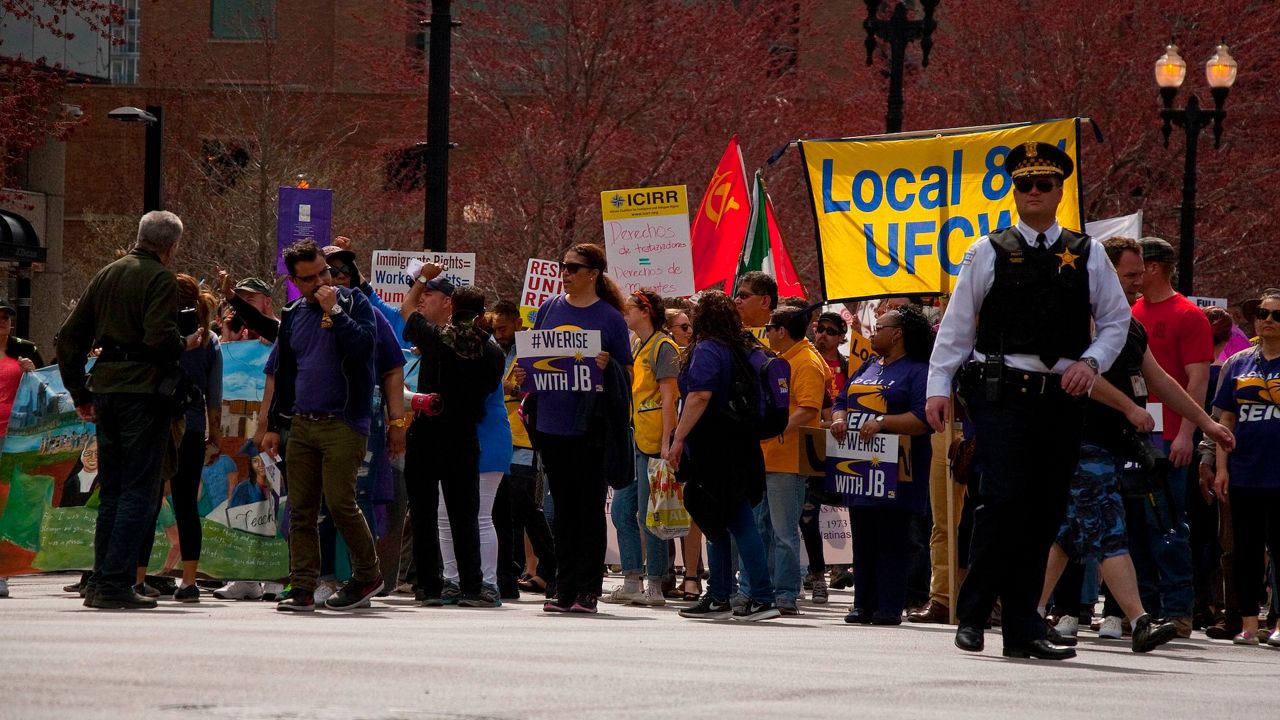FLORIDA — America as a nation has officially celebrated Labor Day since 1894, when President Grover Cleveland signed an act of Congress designating the holiday into law.
Though it’s now observed as a joyful end-of-summer tradition with barbecues, beach trips and other fun-in-the-sun festivities, Labor Day was born out of the organized labor movement’s battles for equitable workplace conditions during America’s Industrial Revolution.
What You Need To Know
- Labor Day was officially declared a holiday in 1894
- The holiday is a direct result of America's early attempts at organized labor
- Florida's status as a "right to work" state means workers do not have to belong to unions
Labor Day unofficially began on Sept. 5, 1882 when 10,000 New York City workers took unpaid time off to march from City Hall to Union Square; it officially became a holiday less than a decade after a labor protest turned into a bloody riot in Chicago’s Haymarket Square in 1886 — and with the federal government facing the fallout from a massive, business-stifling railroad strike.
So when we celebrate the American tradition of a hard day’s work, we’re also celebrating those who fought for such now-standard employment practices as a five-day work week and child labor laws.
Like many states whose economies were historically more dependent on agriculture than manufacturing, Florida has never been a labor union stronghold. In fact, it’s one of 28 states with “right to work” laws that preserve an individual’s choice when it comes to unionized workplaces.
But what is a “right to work” state, exactly?
Some believe that Florida’s “right to work” law, which is enshrined in the state’s Constitution, means that an employer or employee can terminate an employment at any time, for any reason, with or without cause. While true to a certain degree — Florida is also an “at-will” employment state, where employees can legally quit without notice and employers can terminate employees for any reason that doesn’t violate anti-descrimination law — it’s not what “right to work” means, or is supposed to do.
Article 1, Section 6 of the Florida Constitution states, “The right of persons to work shall not be denied or abridged on account of membership or non-membership in any labor union or labor organization. The right of employees, by and through a labor organization, to bargain collectively shall not be denied or abridged. Public employees shall not have the right to strike.”
In the simplest terms, it means that someone can work in the state whether they’re a member of a union or not.
Florida’s “right to work” law has been the subject of debate since even before the current language was codified in the Constitution in 1968. Depending upon one’s political perspective, it can be seen as protecting an individual’s freedom of choice, or as a legislative attempt to weaken organized labor in the state, since those in a workplace who don’t belong to a union can’t vote on such issues as fighting for better salaries or conditions.
The origins of Labor Day, and the lasting effects they’ve had on the American worker, might be worth some thought while grilling up the fun this weekend.




